Jeff Garrison
Bluemont and Mayberry Presbyterian Church
Mark 10:23-27
April 11, 2021
Sermon recorded at Mayberry Church on Friday, April 9, 2021
At the beginning of worship
As Christians, we need to laugh more. Too often we think of humor as inappropriate in churches. God is seen as some stern judge up in the sky, with piercing eyes and a frown, upset with all humanity. But let me tell you a secret. God delights in humor. We see it in creation. Why did God create the opossum? Or the anteater? Or the monkey? Or some of us?[1] We can also see it in scripture.
Sarah laughing
In our Old Testament reading today, you’ll hear of Sarah laughing at the possibility she, as an old lady, will give birth.[2] And God has the last laugh. God wants us to lighten up, to not take ourselves too seriously, and to trust him. We’ll see this in our New Testament reading, too. I’m reading Mark 10: 23-27.
After the Reading of Scripture
A former pastor, Jim Johnson, now owns the Bull’n Bear Saloon in Red Lodge, Montana. On making this transition from the pulpit to behind the bar, he tells this joke: “Two guys walk into a bar and stop dead in their tracks. One thinks to himself, ‘Oh no, my preacher’s a bartender!’ The other thinks, ‘Oh no, my bartender’s a preacher!’”[3]
How we perceive humor
We perceive humor differently, depending on our perspective. What one person finds funny might not be funny to someone else, just as a bartending preacher receives a different reaction from a bar patron and a parishioner.
An eye of a needle
It may have been the same way with Jesus’ parable about the camel going through an eye of a needle. Just try to image how silly this word picture looks—a camel, one of the larger animals in that part of the world compared to such a small opening. It’s funny, in a “Far Side” fashion.
Imagine the disciples laughing as Jesus tells this story. Jesus had just encountered the rich man who wouldn’t follow Jesus because he had much to lose. The man went away sad. He just couldn’t risk giving up his stuff, but that’s another sermon. The disciples who witnessed this looks to Jesus for some reassurance for their salvation. Jesus’ tells this story.
If the rich can’t make it, can we?
For what we know, none of the disciples were rich, so it’s easy for them to laugh at the absurdity… Or maybe not. Maybe they saw riches as a sign of God’s favor. Unfortunately, some people are like that, proclaiming a prosperity gospel. But this story undercuts the idea that wealth equals God’s favor. Now the disciples, whose bank accounts aren’t exactly overflowing, may have laughed at the absurd image and at all those people with all that money who are doomed.
But then, one by one, they began to think. We’ll I’m not totally poor. I own a fishing boat. I own some robes. I’m not going hungry. I have a house… Maybe I’m not rich by some standards, but I’m not a beggar. I’m at least middle class. What does this mean? Is getting into heaven more like a dog or a cat, instead of a camel, getting through an eye of a needle? I still don’t stand a chance.
What animal can make it through an eye of a needle?
Their minds run wild. What kind of animal can get through the eye of a needle? Well, what about a worm or even an ant. Of course, it’d have to be a very small worm or ant to get through the eye of a needle. This begs the question. Is Jesus saying I must be so small that I can only be a microscopic worm or ant? If so, where does that put me?[4]
The laughter begins to subside as they realize their predicament, our predicament. We’re doomed. Frustrated, they ask Jesus, “Just who can be saved?” Jesus responds, telling them it’s impossible for humans, but nothing is impossible for God. Humor helped Jesus drive home his point.
Do we believe this?
We often have a hard time accepting this point. Some have tried to reinterpret this passage, suggesting that Jesus wasn’t referring to a needle that’s used for sewing, but that the eye of a needle was the name of a narrow gate through the city’s walls. A camel would have to get on its knees and crawl in. But such interpretation, I think, displays our fear—we’re not in control. And that’s Jesus’ point.[5]
Pushing to the absurd for humor: Mark Twain
When you push an idea to the absurd, you get humor. Mark Twain knew this. He once wrote a letter from Virginia City, Nevada to his mother, telling on his brother, Orion, for stealing some stamps from a local mill. Twain felt this the perfect joke. In the letter, he said his brother had slipped these stamps into his pocket.
As soon as his mom heard this about her older son, she shot off a letter chastising Orion. She had no idea Twain was pulling her leg. “Stamps” in a stamp mill weighed 100s of pounds. These “stamps” crushed rock.[6] It’s absurd to think about putting such stamps in his pocket, which makes it funny while there was no way it could be factually true.
Bill Bryson
Bill Bryson is another humorous writer who is a master at expanding a truth to the point that it’s humorous. In his book, A Walk in the Woods, about hiking the Appalachian Trail, he does this with bears. Anyone who hikes a significant portion of the trail will probably see a bear, but Bryson makes it sound like bears regularly snack on hikers.
He did the same thing in his book, In a Sunburned Country, about his travels in Australia. Reading it, you’d wonder if most people in the land Down Under die from being bitten by snakes and spiders or eaten by crocodiles and sharks. Taking a grain of truth and blowing it out of proportion, it sounds like the country tries to kill you.
Exaggeration says “Lighten Up”
Using exaggeration to be funny is a way of saying, “Lighten Up.” We don’t need to be so uptight about everything. No, we can’t save ourselves. But the good news is that with God all is possible. Where do we point our trust? In our stuff (which won’t fit through the needle’s eye) or in God? Of course, it’s easy for us to miss the joke. That’s partly because jokes don’t always translate across cultures. Furthermore, jokes are best told and not read.[7]
Making fun of ourselves
Another humorous writer I enjoy is the late Patrick McManus. He’s published a dozen or so books and wrote humorous columns for Outdoor Life and Field and Stream. While McManus used exaggeration for humor, he often reported on his own silliness and mistakes. The best jokes are those we make about ourselves and not others. The mess he found himself in while hunting or fishing can be chuckling, because many of us have been in similar situations. As he aged, McManus lamented how things change. He realizes the trails have become steeper and the oxygen in the mountains have decreased. We’ve experienced that, haven’t we?[8]
By the way, did any of you catch the joke in my e-news yesterday? Actually, it wasn’t intended as a joke, but it is kind of funny. I wrote about how with the weather being nicer, we had Bible Study at Bluemont outside, under the picnic shelter. Only, instead of saying “picnic shelter,” I wrote “picnic table.” A friend emailed me saying that my Bible Study must have been pretty small! I started to reply with a snarky comment about how he was just jealous that we’re still flexible enough that we can get under the table.
Problem: people see us as too serious
One of the problems the church has in the world is that other people see us as taking ourselves too seriously. When we carry heavy burdens and don’t trust God’s Spirit enough, it’s easy to get down and depressed. And then we don’t reflect Jesus’ love to the world.
A few years ago, in my blog, I posted a humorous piece about Communion. I was a little nervous about how it might be accepted but was comforted by the comments. One suggested that if such humor was used more often, they’d be more people in the pews on Sunday. Another woman, from Australia, who confessed to not having been raised religious, said the humor helped her understand what communion was about.[9]
Jesus calls us to “Abundant Life”
Jesus doesn’t want us to be uptight. Jesus wants us to have abundant life, beginning now. This means we need to be joyous and to laugh more. Humor is good for us. It can be holy! We should, at the very least, be able to laugh at ourselves. It keeps us humbled. The great mid-20th Century Theologian Karl Barth once said that “laughter is the closest thing to the grace of God.”[10]
Children and laughter and Patch Adams
Think about children and how they laugh. They laugh at the silliest of things. We adults think we must be more serious. I wonder if, when Jesus said that if we want to enter the kingdom of God we must come like a child, he meant that we must come laughing like a child?[11]Ponder that thought for a while.
Laughter is also good for us. Do you remember the movie, Patch Adams, where Robin Williams played a doctor who used laughter in treating patients? Do you recall how he got a children’s ward filled with kids suffering from cancer to laugh? And how the head nurse was mortified and ordered him out of the ward and told the kids to get back in the bed?[12] The movie shows how we adults are too serious. The world needs to lighten up and enjoy things. After all, God created the world for us to enjoy and we should delight in it.
Benefits of laughter
Laughter relaxes us. According to some studies it can heal us by boosting our immune system. In addition to lightening our hearts and reducing anger, laughter helps us to burn a few extra calories. It lowers our stress. And it makes us more pleasant to be around![13]
So, this week, take time to laugh. Read the comics or pick up a humorous book. Take an opportunity to laugh at yourself. If you come across a great joke, share it with a friend. Share it with me! I might can use it in a sermon. After all, I think most of you would want me to use a joke you told in a sermon and not a sin you’ve committed. (Don’t worry. That’s also a joke.)
We all need laughter. We’d be a lot better off if we could laugh at ourselves. Our follies help us realize how much we depend on God. Thinking of laughter in this way, it’s a spiritual discipline. Amen.
While showing a tragic situation (the destruction following Hurricane Matthew), the sign brings a bit of humor into the subject. I took the photo on Skidaway Island in October 2016.
A previous version of this sermon, delivered at Skidaway Island Presbyterian Church, can be found here: https://fromarockyhillside.com/2020/01/3376/. I have also preached a version of the sermon at Wilmington Island Presbyterian Church in Savannah.
[1] This is an old preaching joke that I’ve heard attributed to Billy Sunday, among others.
[2] Genesis 18:9-15.
[3] https://billingsgazette.com/lifestyles/faith-and-values/religion/pastor-turned-bar-owner-writes-on-similarities-differences-between-bars/article_673abca0-5749-5a9e-981f-a0e6291c5421.html
[4] Jesus is challenging a false sense of security here. See William L. Lane, The New International Commentary on the New Testament: Gospel of Mark (Grand Rapids: Eerdmans, 1971), 369.
[5] As for debunking the theory of enlarging the eye of a needle to a gate, see Morna D. Hooker, The Gospel According to Saint Mark (Hendrickson Publishing 2nd Ed, 1997: London, A & C Black, 1991), 243.
[6] I’m pretty sure I am remembering this from when I read Twain’s published correspondence from Virginia City, NV. Twain often made fun of his brother, once saying he was “as happy as a martyr when the fire won’t burn.” See Philip Ashley Fanning, Mark Twain and Orion Clemens: Brothers, Partners, Strangers (Tuscaloosa, AL: University of Alabama Press, 2003), 151.
[7] See John L. Bell’s essay “Giggling for God” in 10 Things They Never Told Me About Jesus (Chicago: GIA Publishing, 2009), 126.
[8] Patrick F. McManus, Kerplunk (New York: Simon & Schuster, 2007), 104.
[9] This post is no longer available on thepulpitandthepen.com site (where the comments were), but I have posted it again in this blog: https://fromarockyhillside.com/2021/04/a-lighthearted-yet-serious-look-at-the-lords-supper-from-a-protestant-perspective-2/
[10] https://www.spiritualityandpractice.com/practices/features/view/20120
[11] See Mark 10:14. See also Matthew 19:14 and Luke 18:16.
[12] A clip of the movie with Patch Adams in the children’s ward can be found on YouTube: https://www.youtube.com/watch?v=byPJ22JDFjI
[13] See https://www.helpguide.org/articles/mental-health/laughter-is-the-best-medicine.htm


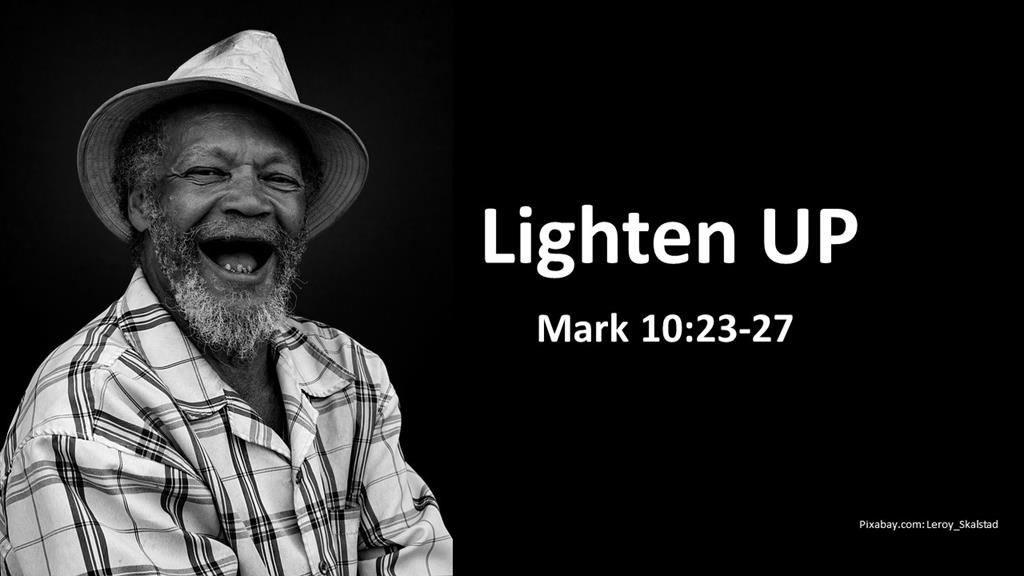


 It may have been the same way with Jesus’ parable about the camel going through an eye of a needle. Just try to image how silly this word picture looks—a camel, one of the larger animals in that part of the world compared to such a small opening. This is funny, in a “Far Side” kind of fashion.
It may have been the same way with Jesus’ parable about the camel going through an eye of a needle. Just try to image how silly this word picture looks—a camel, one of the larger animals in that part of the world compared to such a small opening. This is funny, in a “Far Side” kind of fashion. For what we know, none of the disciples were rich, so it’s easy for them to laugh at the absurdity. Or maybe not. Maybe there were those who saw riches as a sign of God’s favor. Unfortunately, there are still some people like that, proclaiming a prosperity gospel. But this story undercuts the idea that wealth equals God’s favor. Now the disciples, whose bank accounts aren’t exactly overflowing, may have laughed at all the absurd image and at all those people with all that money who are doomed.
For what we know, none of the disciples were rich, so it’s easy for them to laugh at the absurdity. Or maybe not. Maybe there were those who saw riches as a sign of God’s favor. Unfortunately, there are still some people like that, proclaiming a prosperity gospel. But this story undercuts the idea that wealth equals God’s favor. Now the disciples, whose bank accounts aren’t exactly overflowing, may have laughed at all the absurd image and at all those people with all that money who are doomed. The laughter begins to subside as they realize their predicament. They’re doomed. Frustrated, they ask Jesus, “Just who can be saved?” Jesus responds, telling them it’s impossible for humans, but nothing is impossible for God. Jesus uses humor to make this point, but we often have a hard time accepting it which is why people have tried to reinterpret this passage such as suggesting that Jesus wasn’t referring to a needle used for sewing, but that it was the name of a narrow gate through the city’s walls. I’ve heard that interpretation in sermons and think it displays our fear of the truth—that we’re not in control.
The laughter begins to subside as they realize their predicament. They’re doomed. Frustrated, they ask Jesus, “Just who can be saved?” Jesus responds, telling them it’s impossible for humans, but nothing is impossible for God. Jesus uses humor to make this point, but we often have a hard time accepting it which is why people have tried to reinterpret this passage such as suggesting that Jesus wasn’t referring to a needle used for sewing, but that it was the name of a narrow gate through the city’s walls. I’ve heard that interpretation in sermons and think it displays our fear of the truth—that we’re not in control.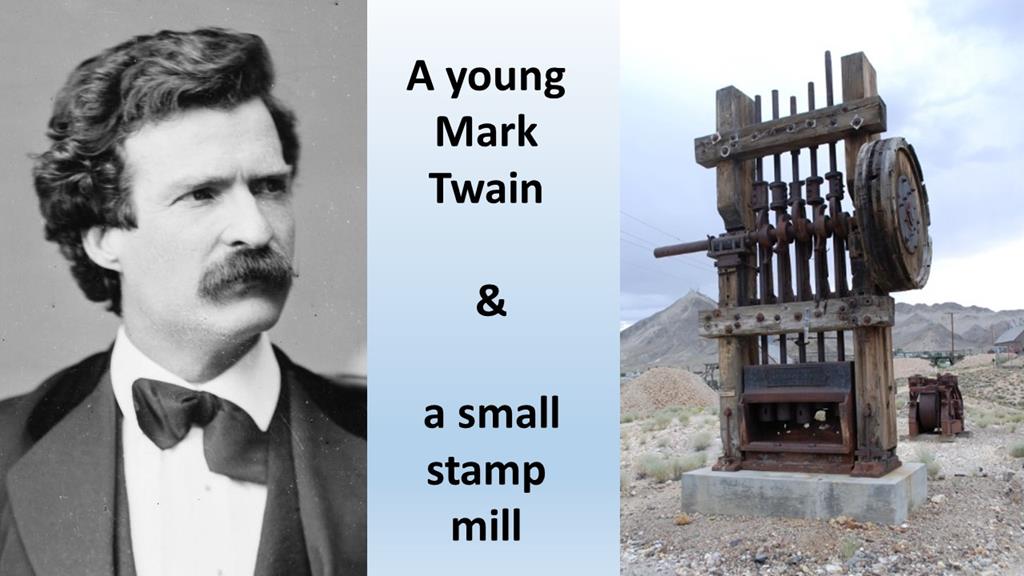 When you push an idea to the absurd, you get humor. Mark Twain knew this. He once wrote a letter from Virginia City, Nevada to his mother, telling on his brother for stealing some stamps from a local mill. According to Twain, his brother had slipped these into his pocket. Twain thought it was a perfect joke. His mom would get on his brother’s case, for she had no idea that the “stamps” in a stamp mill weigh 100s of pounds and were used to crush rock.
When you push an idea to the absurd, you get humor. Mark Twain knew this. He once wrote a letter from Virginia City, Nevada to his mother, telling on his brother for stealing some stamps from a local mill. According to Twain, his brother had slipped these into his pocket. Twain thought it was a perfect joke. His mom would get on his brother’s case, for she had no idea that the “stamps” in a stamp mill weigh 100s of pounds and were used to crush rock.
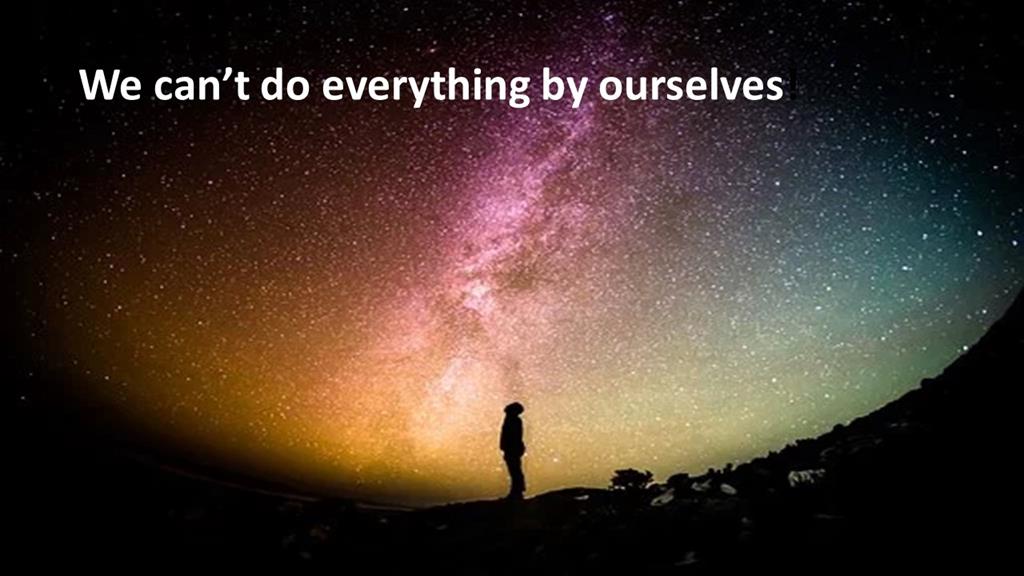 Using exaggeration to be funny is a way of saying, “Lighten Up.” We don’t need to be so uptight about everything. No, we can’t save ourselves. But the good news is that with God all is possible. Where do we point our trust? In our stuff (which won’t fit through the needle’s eye) or in God? Of course, it’s easy for us to miss the joke. That’s partly because jokes don’t always translate across cultures. Furthermore, jokes are best told and not read.
Using exaggeration to be funny is a way of saying, “Lighten Up.” We don’t need to be so uptight about everything. No, we can’t save ourselves. But the good news is that with God all is possible. Where do we point our trust? In our stuff (which won’t fit through the needle’s eye) or in God? Of course, it’s easy for us to miss the joke. That’s partly because jokes don’t always translate across cultures. Furthermore, jokes are best told and not read.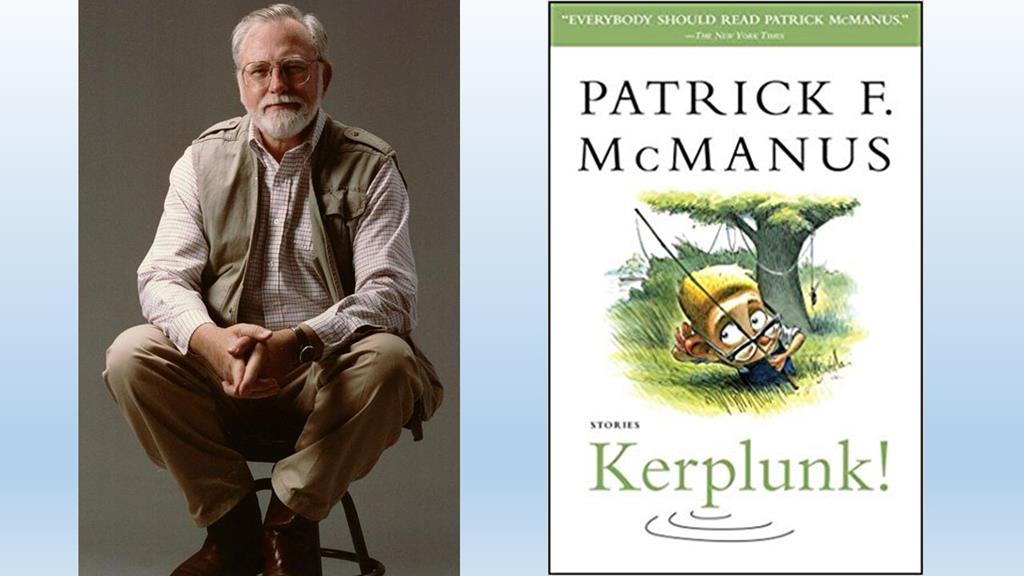 Another humorous writer I enjoy is the late Patrick McManus. He’s published a dozen or so books and wrote humorous columns for Outdoor Life and Field and Stream. While McManus used exaggeration for humor, he often reported on his own silliness and mistakes. The best jokes are those we make about ourselves and not others. The mess he found himself in while hunting or fishing can be chuckling, because many of us have been in similar situations. As he aged, McManus lamented how things change. The trails have become steeper and the oxygen in the mountains have decreased since his youth. We’ve experienced that, haven’t we?
Another humorous writer I enjoy is the late Patrick McManus. He’s published a dozen or so books and wrote humorous columns for Outdoor Life and Field and Stream. While McManus used exaggeration for humor, he often reported on his own silliness and mistakes. The best jokes are those we make about ourselves and not others. The mess he found himself in while hunting or fishing can be chuckling, because many of us have been in similar situations. As he aged, McManus lamented how things change. The trails have become steeper and the oxygen in the mountains have decreased since his youth. We’ve experienced that, haven’t we? One of the problems the church has in the world is that other people see us as taking ourselves too seriously. We carry heavy burdens and don’t trust God’s Spirit enough, it’s easy to get down and depressed. And then we don’t do a good job of reflecting Jesus’ face to the world.
One of the problems the church has in the world is that other people see us as taking ourselves too seriously. We carry heavy burdens and don’t trust God’s Spirit enough, it’s easy to get down and depressed. And then we don’t do a good job of reflecting Jesus’ face to the world.
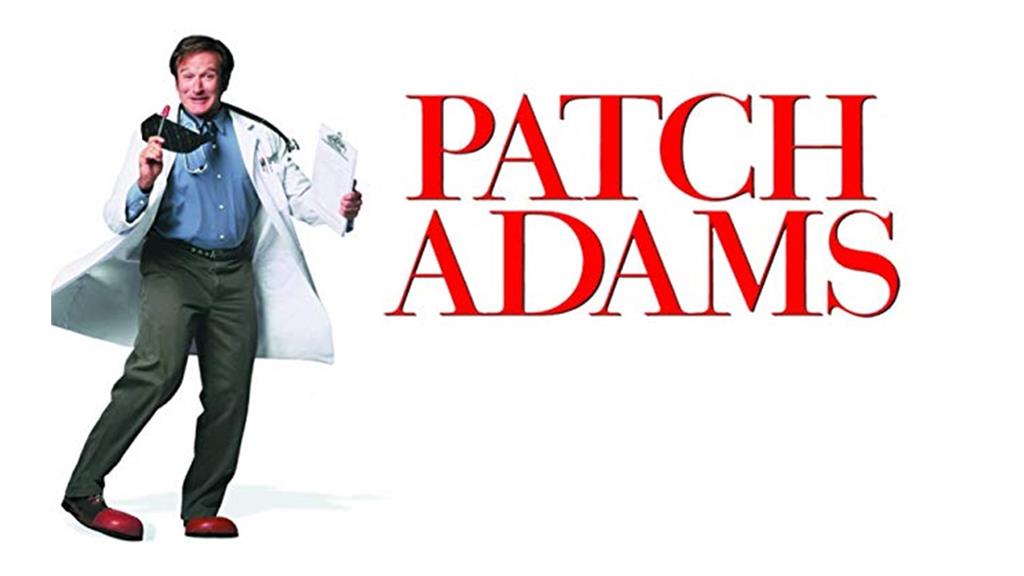 Laughter is also good for us. Do you remember the movie, Patch Adams, where Robin Williams played a doctor who used laughter in treating patients? Do you recall how he got a children’s ward filled with kids suffering from cancer to laugh? And how the head nurse was mortified and ordered him out of the ward and told the kids to get back in the bed? The movie showed how we adults are too serious and that the world needs to lighten up and enjoy things.
Laughter is also good for us. Do you remember the movie, Patch Adams, where Robin Williams played a doctor who used laughter in treating patients? Do you recall how he got a children’s ward filled with kids suffering from cancer to laugh? And how the head nurse was mortified and ordered him out of the ward and told the kids to get back in the bed? The movie showed how we adults are too serious and that the world needs to lighten up and enjoy things. Laughter relaxes us. According to some studies it can heal us by boosting our immune system. In addition to lightening our hearts and reducing anger, laughter helps us to burn a few extra calories. It lowers our stress. And it makes us more pleasant to be around!
Laughter relaxes us. According to some studies it can heal us by boosting our immune system. In addition to lightening our hearts and reducing anger, laughter helps us to burn a few extra calories. It lowers our stress. And it makes us more pleasant to be around!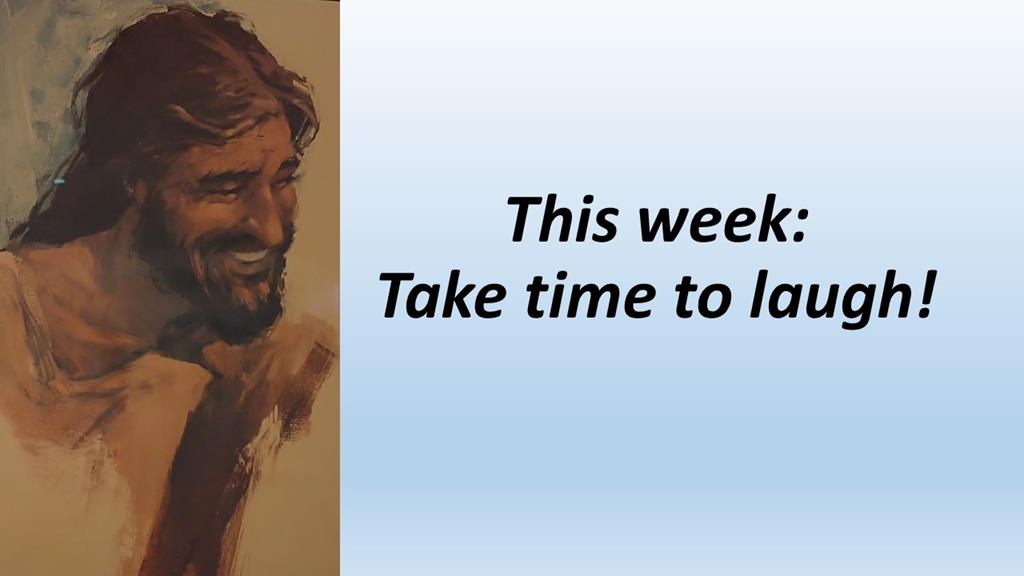 So, this week I want you to take time to laugh. Read the comics or pick up a humorous book. Take an opportunity to laugh at yourself. If you come across a great joke, drop it in an email to me or to a friend. We all need laughter and we’d be a lot better off if we could laugh at ourselves, for our follies makes us realize how much we depend on God.
So, this week I want you to take time to laugh. Read the comics or pick up a humorous book. Take an opportunity to laugh at yourself. If you come across a great joke, drop it in an email to me or to a friend. We all need laughter and we’d be a lot better off if we could laugh at ourselves, for our follies makes us realize how much we depend on God. Patrick F. McManus, Kerplunk! (New York: Simon & Schuster, 2007), 227 pages.
Patrick F. McManus, Kerplunk! (New York: Simon & Schuster, 2007), 227 pages. David McCullough, The Pioneers: The Heroic Story of the Settlers Who Brought the American Ideal West (New York: Simon & Schuster, 2019), 331 pages, a few illustrations.
David McCullough, The Pioneers: The Heroic Story of the Settlers Who Brought the American Ideal West (New York: Simon & Schuster, 2019), 331 pages, a few illustrations. James Clavell, Tai-Pan (1966, Blackstone Publishing, 2019), 885 pages (~34 hours on Audible).
James Clavell, Tai-Pan (1966, Blackstone Publishing, 2019), 885 pages (~34 hours on Audible).